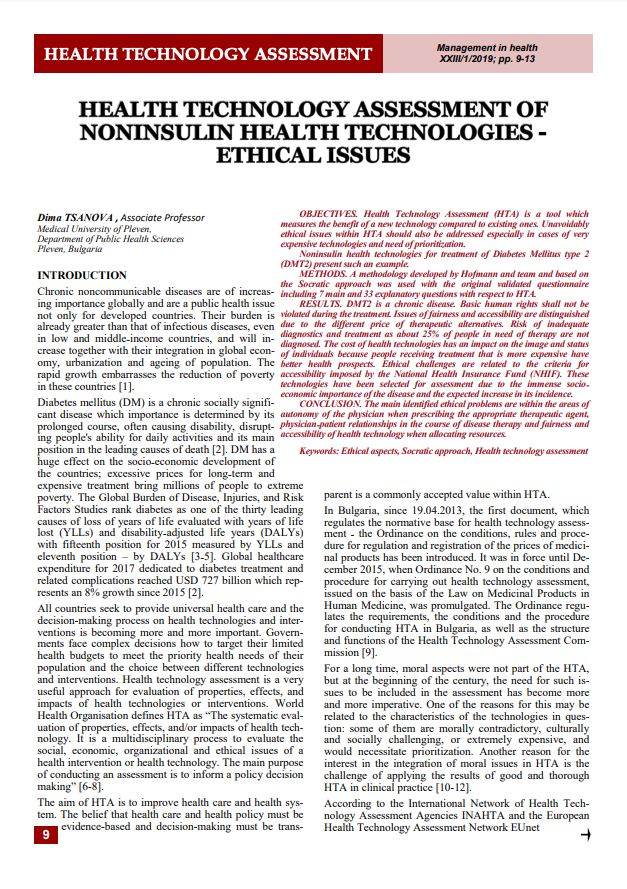Abstract
OBJECTIVES.
Health Technology Assessment (HTA) is a tool which measures the benefit of a new technology compared to existing ones. Unavoidably ethical issues within HTA should also be addressed especially in cases of very expensive technologies and need of prioritization.
Noninsulin health technologies for treatment of Diabetes Mellitus type 2 (DMT2) present such an example.
METHODS.
A methodology developed by Hofmann and team and based on the Socratic approach was used with the original validated questionnaire including 7 main and 33 explanatory questions with respect to HTA.
RESULTS.
DMT2 is a chronic disease. Basic human rights shall not be violated during the treatment. Issues of fairness and accessibility are distinguished due to the different price of therapeutic alternatives. Risk of inadequate diagnostics and treatment as about 25% of people in need of therapy are not diagnosed. The cost of health technologies has an impact on the image and status of individuals because people receiving treatment that is more expensive have better health prospects. Ethical challenges are related to the criteria for accessibility imposed by the National Health Insurance Fund (NHIF). These technologies have been selected for assessment due to the immense socioeconomic importance of the disease and the expected increase in its incidence.
CONCLUSION.
The main identified ethical problems are within the areas of autonomy of the physician when prescribing the appropriate therapeutic agent, physician-patient relationships in the course of disease therapy and fairness and accessibility of health technology when allocating resources.

